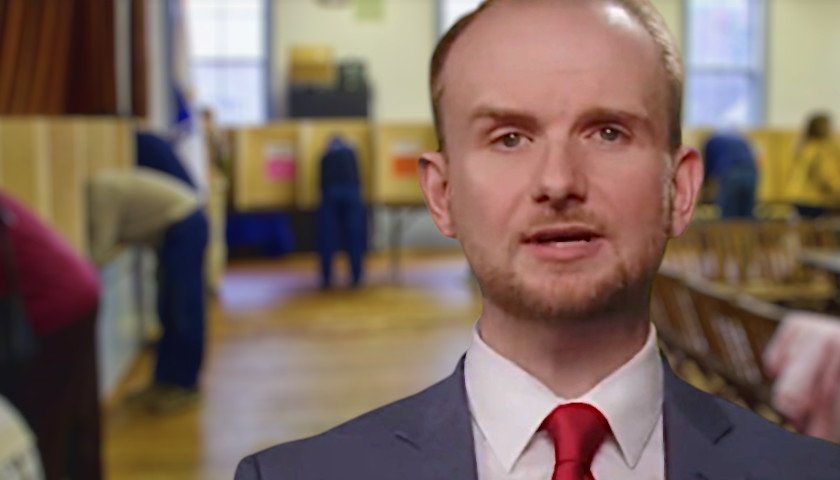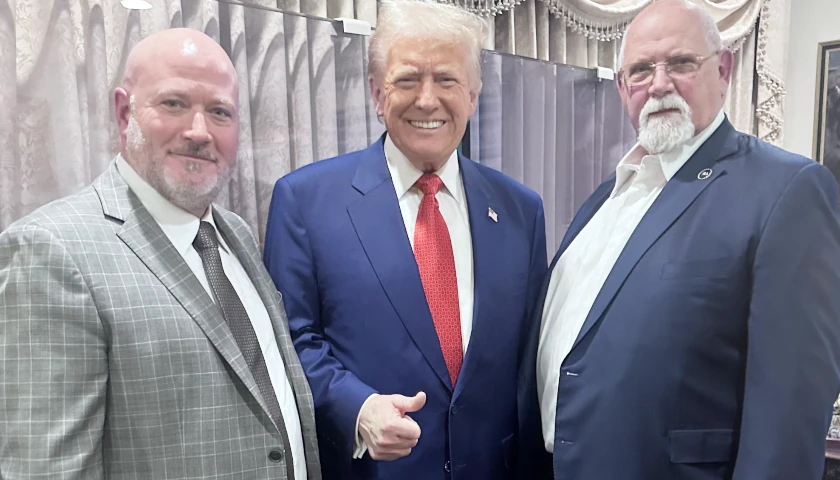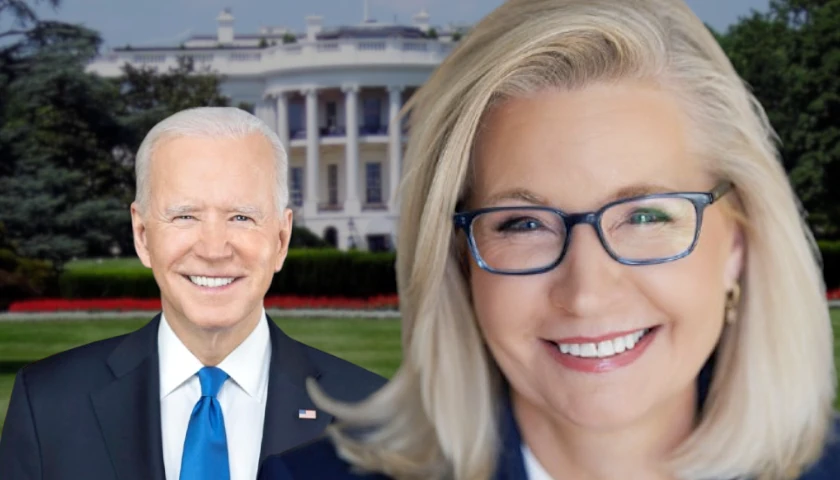SCOTTSDALE, Arizona – The American Legislative Exchange Council held their national annual conference in Scottsdale last week, which included a pre-session for legislators with the Honest Elections Project (HEP). HEP is focusing on three issues relating to elections currently, and is proposing draft model legislation that legislators can introduce on a few issues. One is Ranked Choice Voting (RCV), which is gearing up to be a huge fight on the 2024 ballot in Arizona.
Three progressive groups are pushing RCV in Arizona. However, the Arizona Legislature has also referred a proposition to the ballot in 2024 that would stop RCV. HEP has extensively looked into how RCV works, and determined that it ends up putting far left Democrats into office, not moderates as some would expect. HEP’s fact sheet went over several races where it was used and showed how it facilitates this, undermining the Constitution’s principle of one person, one vote.
Jason Snead (pictured above), executive director of HEP, is leading a coalition with Trent England of Save Our States to stop RCV. Snead managed the development of the Heritage Election Fraud Database, which compiled proven instances of voter fraud from around the nation.
Snead told The Arizona Sun Times that RCV is expected to be on the ballot soon in several states. Alaska, Maine, and several smaller jurisdictions have already adopted it. He explained how a race in Alabama eliminated the moderate early on. In Boulder, Colorado, a Republican was winning until RCV was implemented.
Progressive billionaire George Soros is bankrolling the movement, through the organization FairVote that he funds. It is also funded by United America, a group run by the progressive daughter-in-law of Rupert Murdoch, Kathryn Murdoch, who donates to all progressive causes. There is considerable money from outside groups funding the ballot propositions in various states, as well as foreign money, Snead said. A progressive foreigner living in Wyoming is financing much of the effort with hundreds of millions of dollars. Snead believes there has been illegal funding donated to the campaigns through 501c3s and 501c4s.
HEP’s second project is stopping Zuck Bucks (also called “Zuckerbucks”), which is money from Facebook and Meta founder Mark Zuckerberg that is given to elections departments. Zuckerberg and his wife gave grants ostensibly for COVID-19 to the progressive Center for Tech and Civic Life to award to elections departments. HEP published a lengthy report on the damage Zuck Bucks is having on our elections. The grants went to heavily Democratic areas, where they were used in ways that favored Democrats, like getting out the vote (GOTV).
Snead told The Sun Times that the progressives behind Zuck Bucks are taking advantage of well-meaning, low-level election officials. And although states are banning the practice, officials are finding ways to get around the bans. In Arizona’s Coconino County, election officials found a loophole in the law. Instead of accepting flat lumps of money from Zuck Bucks, they changed the process to a membership with Zuck Bucks. Snead said the goal of Zuck Bucks was never just to give money to the government, but to influence how the elections are administered. The Capital Research Institute has done extensive research into Zuck Bucks.
In a sign Zuck Bucks has been successful, Snead said they are now contributing less money to elections departments, having figured out from the initial $80 million in seed money how to successfully infiltrate election administration. They fool people by putting out information innocuously titled “guidance operations” and describing themselves as a nonpartisan “good governance” group. Their poll worker recruitment emphasizes Diversity, Equity, and Inclusion (DEI).
The third initiative HEP is working on is improving the audit process in elections — not involving actual ballots, but the process itself; identifying where rules and procedures are not being violated. For example, in Harris County, Texas, 184,000 ballots lacked a chain of custody, but the numbers appeared to match up correctly.
HEP is also involved in litigation, filing amicus briefs in election related cases such as ones involving the topic of eliminating voter ID and signature matching. They’ve worked in conjunction with the election integrity champion Arizona Free Enterprise Club.
– – –
Rachel Alexander is a reporter at The Arizona Sun Times and The Star News Network. Follow Rachel on Twitter / X. Email tips to [email protected].
Image “Jason Snead” by Jason Snead, and “Polling Place” is my Liz West CC2.0.








